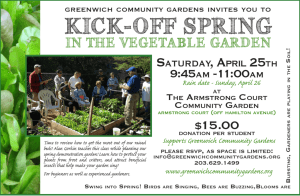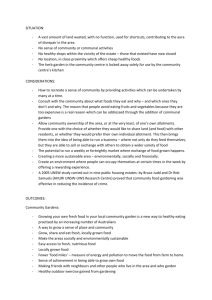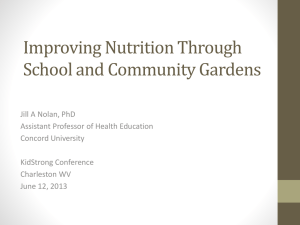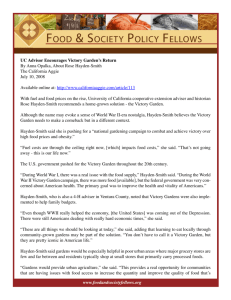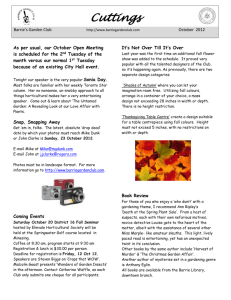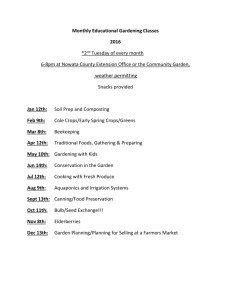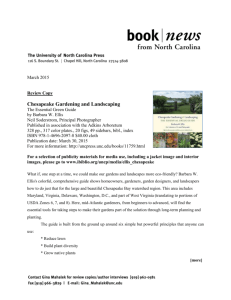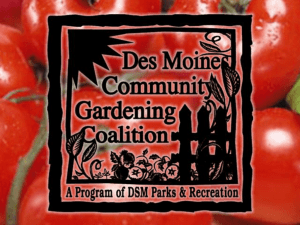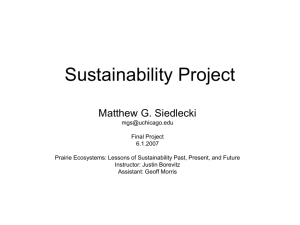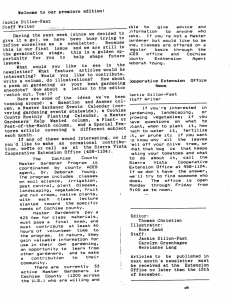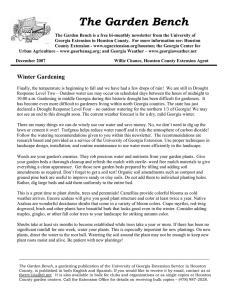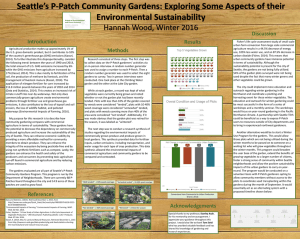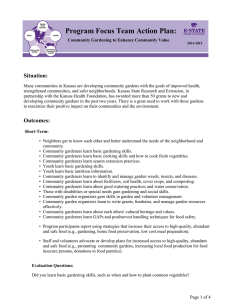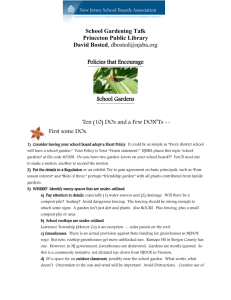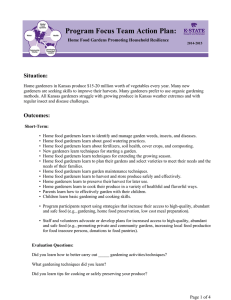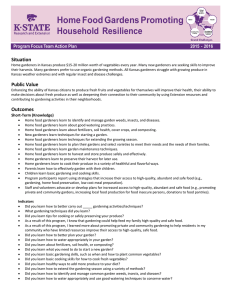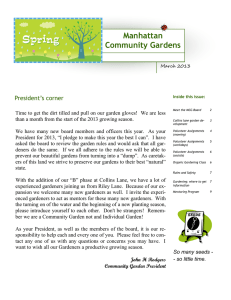In the Autumn of 2001, I wrote about the Victory Gardens of our past
advertisement
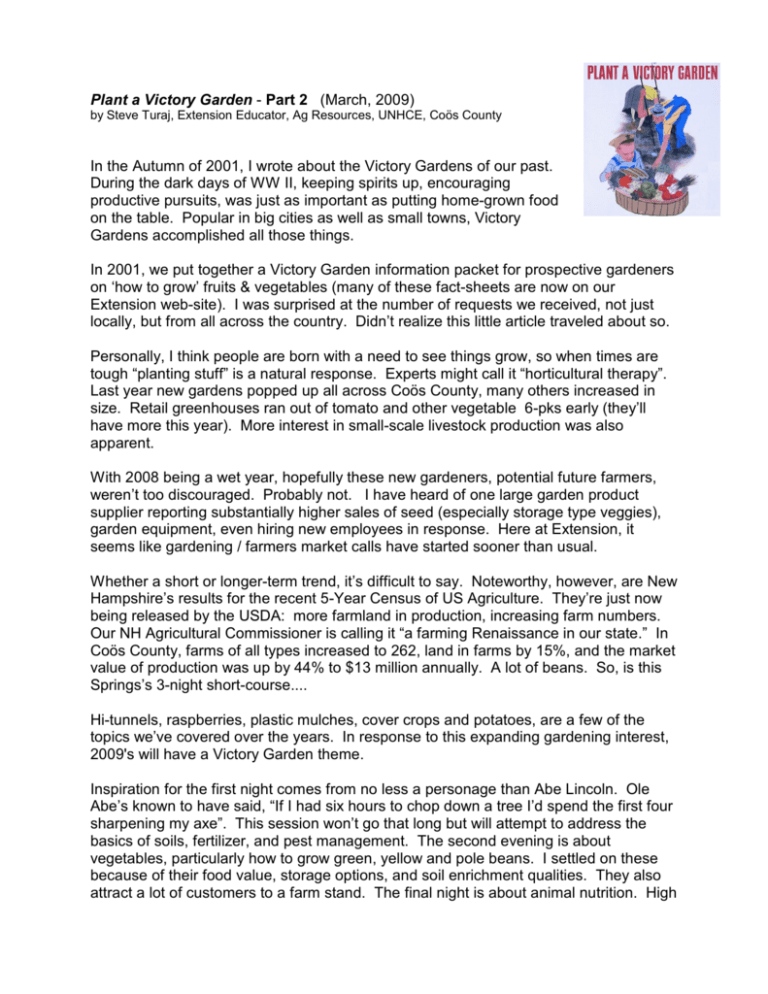
Plant a Victory Garden - Part 2 (March, 2009) by Steve Turaj, Extension Educator, Ag Resources, UNHCE, Coös County In the Autumn of 2001, I wrote about the Victory Gardens of our past. During the dark days of WW II, keeping spirits up, encouraging productive pursuits, was just as important as putting home-grown food on the table. Popular in big cities as well as small towns, Victory Gardens accomplished all those things. In 2001, we put together a Victory Garden information packet for prospective gardeners on ‘how to grow’ fruits & vegetables (many of these fact-sheets are now on our Extension web-site). I was surprised at the number of requests we received, not just locally, but from all across the country. Didn’t realize this little article traveled about so. Personally, I think people are born with a need to see things grow, so when times are tough “planting stuff” is a natural response. Experts might call it “horticultural therapy”. Last year new gardens popped up all across Coös County, many others increased in size. Retail greenhouses ran out of tomato and other vegetable 6-pks early (they’ll have more this year). More interest in small-scale livestock production was also apparent. With 2008 being a wet year, hopefully these new gardeners, potential future farmers, weren’t too discouraged. Probably not. I have heard of one large garden product supplier reporting substantially higher sales of seed (especially storage type veggies), garden equipment, even hiring new employees in response. Here at Extension, it seems like gardening / farmers market calls have started sooner than usual. Whether a short or longer-term trend, it’s difficult to say. Noteworthy, however, are New Hampshire’s results for the recent 5-Year Census of US Agriculture. They’re just now being released by the USDA: more farmland in production, increasing farm numbers. Our NH Agricultural Commissioner is calling it “a farming Renaissance in our state.” In Coös County, farms of all types increased to 262, land in farms by 15%, and the market value of production was up by 44% to $13 million annually. A lot of beans. So, is this Springs’s 3-night short-course.... Hi-tunnels, raspberries, plastic mulches, cover crops and potatoes, are a few of the topics we’ve covered over the years. In response to this expanding gardening interest, 2009's will have a Victory Garden theme. Inspiration for the first night comes from no less a personage than Abe Lincoln. Ole Abe’s known to have said, “If I had six hours to chop down a tree I’d spend the first four sharpening my axe”. This session won’t go that long but will attempt to address the basics of soils, fertilizer, and pest management. The second evening is about vegetables, particularly how to grow green, yellow and pole beans. I settled on these because of their food value, storage options, and soil enrichment qualities. They also attract a lot of customers to a farm stand. The final night is about animal nutrition. High grain and hay prices were a given last year, upping the cost of raising livestock, whether pigs or chickens. Can you raise some small plot ‘alternative forage crops’ to reduce purchased feed costs? Turnips, mangel-wurzel anyone? The short-course begins April 1, runs for three Wednesday evenings. It will be held at the Coös County UNH Cooperative Extension Building on Route 3, north of Lancaster. We’re including various seed samples as part of the registration cost. Space is limited, call us at 788-4961 to request sign up information. The University of New Hampshire is an equal opportunity educator and employer. UNH, USDA and NH Counties cooperating.
